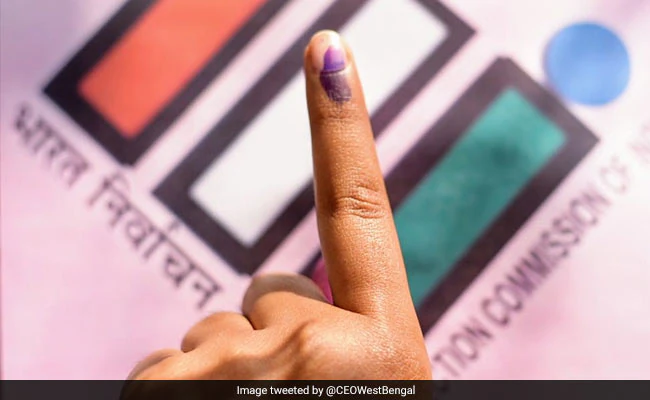Thinking about how social media and cellphone can become distractions from living life, Liz Soares is adjusting her notifications for healthier habits.
I didn’t need to read a book called “How to Break Up With Your Phone,” but I did garner some useful advice from it.
Once I turned off all the alerts except for text messages, my life got a whole lot quieter.
The book, by Catherine Price, discusses how our smartphones commandeer our brains, and lays out a route to achieve healthier relationships with them. I read it more for the first part. As a school librarian, I’m interested in understanding why so many young people can’t sustain their attention enough to finish reading a book.
My iPhone is my constant companion, to be sure, but I didn’t feel I needed to alter my behavior with it. Once in a great while, I’ll get into a hypnotic scrolling mode on Facebook; but not only is this rare, I’m talking 10 minutes, tops.
I actually use the phone to support my reading. I look up words I’m unfamiliar with. In this way, I have learned that inchoate means rudimentary; Réunion is an island in the Indian Ocean; and Pyewacket was named as a familiar by an alleged witch in the 17th century.
This is an example of the affectionate part of my love/hate relationship with technology.
I listen to music on my phone and play restful nature sounds to help get to sleep.
If there is anything unhealthy about my connection to my phone, it is that I feel cut off from the world if I don’t have it. I try, but fail, to conjure the world of my youth, when there was one phone at home, located in the kitchen, and if Mom was talking to her sister Stella you were out of luck for the next hour. During the Blizzard of 1978, I drove 15 miles home from college in a 1964 Ford Falcon, skidded into a shopping center parking lot in my hometown, and called Dad from a pay phone for help.
In retrospect, it was a good thing I didn’t have a cellphone. My father would have been shouting instructions at me, peppered with “What were you thinking?” the whole way.
A few months ago I called my husband, Paul, to let him know I was leaving an appointment and stopping at the grocery store.
He picked up the landline at home, and then the call dropped. What followed was 10 minutes of weirdness and confusion. I could hear the phone at home ringing and I could see that Paul was picking it up, but there was silence, then a disconnection.
I kept trying. Once, Paul managed to say, “Are you OK?” Oh, no. I knew then that he thought I had either fallen and given myself a severe concussion or been kidnapped by space aliens. I panicked.
Instead of going straight to the market, I detoured home to show Paul I was alive and well, and still on planet earth.
Later, I learned that Verizon had some sort of technical issue that day; my phone returned to normal within an hour. But I wouldn’t have gotten myself into such a tizzy if I didn’t see my phone as a lifeline.
That’s not going to change: it’s the way we live now. It may have been difficult and even dangerous to get to a pay phone back then; now it’s impossible.
But alerts — that was something I could handle. I responded to the novelty of the idea when I first got an iPhone. Then I got a smart watch that synced with it. I thought it was cool that my watch would beep and tell me that stocks had jumped.
Soon, however, I wearied of these notifications. A friend posts on Facebook. I feel obligated to check. It is a cute picture of her cat. There is no harm in this, except that I have been diverted from whatever I am doing to look at a cat. Maybe I was even trying to write a column.
That’s not healthy.
Neither is walking on the beach and having your watch beep. Texts clatter like an old teletype machine. The phone rings. A beep means — oh, the Red Sox lost again.
It only took me a few minutes to turn off all the notifications except for texts. Within a day, I felt so much calmer. I saw the news when I went to news sites. I saw Facebook posts when I visited Facebook. I was amazed that such a small step could change my life for the better.
I once wrote an essay about my mother, who was born in 1920. When she was in her 80s, she became a great fan of a digital version of mahjong. How was it that a woman who wrote letters on a typewriter and listened to soap operas on the radio would now happily spend an afternoon in front of a computer?
Because it was there, of course. It was fun. Much of the time, the technology that invades our lives is helpful and enjoyable. When it’s not, it’s time to break up with it — or at least set a few ground rules.
Liz Soares welcomes email at [email protected]
Success. Please wait for the page to reload. If the page does not reload within 5 seconds, please refresh the page.
Enter your email and password to access comments.
Forgot Password?
Don’t have a Talk profile?
Hi, to comment on stories you must . This profile is in addition to your subscription and website login.
Already have one? .
Invalid username/password.
Please check your email to confirm and complete your registration.
Create a commenting profile by providing an email address, password and display name. You will receive an email to complete the registration. Please note the display name will appear on screen when you participate.
Already registered? Log in to join the discussion.
Only subscribers are eligible to post comments. Please subscribe or login to participate in the conversation. Here’s why.
Use the form below to reset your password. When you’ve submitted your account email, we will send an email with a reset code.
Send questions/comments to the editors.
« Previous
Author Profile
Latest entries
 राशीफल2024.04.18आज का राशिफल 18 अप्रैल 2024: मेष, कर्क और वृश्चिक राशि के जातकों को धन लाभ के योग हैं, जानिए बाकी राशियों का कैसा रहेगा दिन – GNTTV
राशीफल2024.04.18आज का राशिफल 18 अप्रैल 2024: मेष, कर्क और वृश्चिक राशि के जातकों को धन लाभ के योग हैं, जानिए बाकी राशियों का कैसा रहेगा दिन – GNTTV लाइफस्टाइल2024.04.18मेरी क्रिसमस फिल्म ताज़ा खबरे हिन्दी में – मेरी क्रिसमस फिल्म ब्रेकिंग न्यूज़ हिंदी में – Hindustan
लाइफस्टाइल2024.04.18मेरी क्रिसमस फिल्म ताज़ा खबरे हिन्दी में – मेरी क्रिसमस फिल्म ब्रेकिंग न्यूज़ हिंदी में – Hindustan धर्म2024.04.18सुधा मूर्ति द्वारा लिखित "द सेज विद टू हॉर्न्स: अन्यूश़वल टेल्स फ्रॉम माइथोलॉजी" | – Current Affairs Adda247 in Hindi
धर्म2024.04.18सुधा मूर्ति द्वारा लिखित "द सेज विद टू हॉर्न्स: अन्यूश़वल टेल्स फ्रॉम माइथोलॉजी" | – Current Affairs Adda247 in Hindi टेक2024.04.17'This billionaire tech startup' saw the biggest fall in valuation globally in 2024 – The Times of India
टेक2024.04.17'This billionaire tech startup' saw the biggest fall in valuation globally in 2024 – The Times of India










